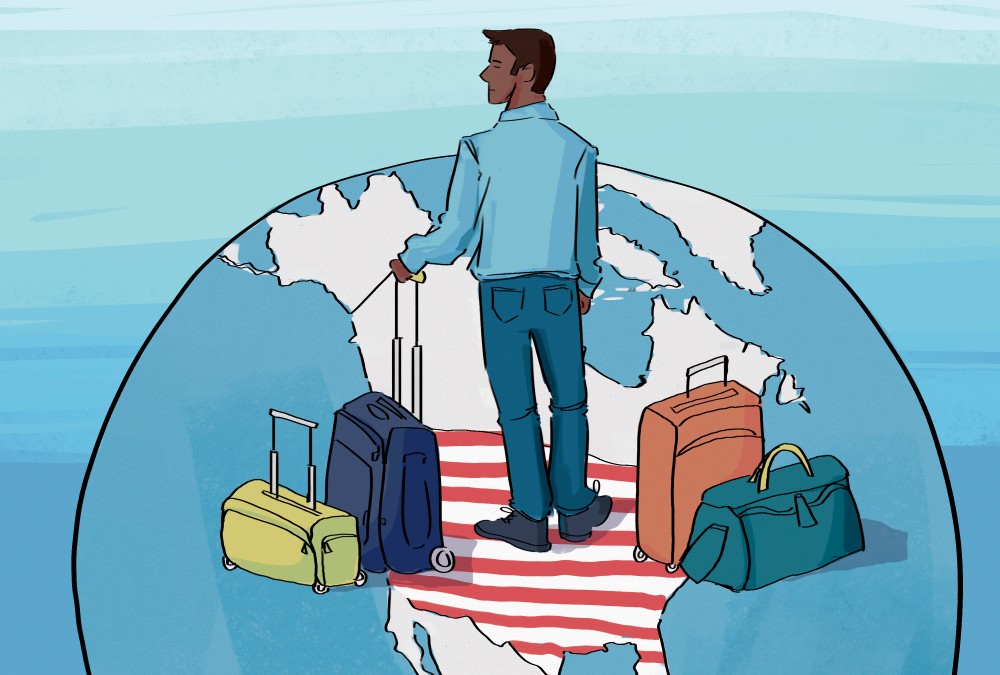This story will be updated as more information becomes available.
The University of Minnesota has made numerous drastic shifts in the past several weeks in response to the rapid international spread of the COVID-19 virus: travel accommodations for international students, an extended spring break and a frenzied switch to online classes.
Now, the University has officially suspended all study abroad programs starting before July 1, requiring all students to return to the U.S. by March 20.
So, what happened with study abroad programs at the University?
All University students studying abroad have been required to return to the U.S., according to an emailed statement issued by Meredith McQuaid, associate vice president and dean for international programs for the University of Minnesota system.
Initial cancelations earlier in the year started with China, South Korea and Italy. March alone has seen several major changes regarding international travel and study so far.
On March 10, the University prohibited all non-necessary travel for students, staff and faculty.
The next day, all students studying abroad in Europe, not including the United Kingdom and Ireland, were required to return to the U.S.
Then, on March 15, all students enrolled in study abroad programs were required to return to the U.S. with a pressing five-day deadline.
The University had been working on a coronavirus response plan since the initial January decision to suspend student travel and education programs in China, said Jennifer Schulz, communications director for the Global Programs and Strategy (GPS) Alliance.
“Responses have been all over the board. Some parents or students wanted to leave earlier, some wanted to leave later, and some didn’t want to leave at all,” she said. “Various students have their ideas of whether they agree with this or not, but we have to look at their health and safety.”
On March 17, the University announced that it canceled all summer programs starting before July 1.
How are students expected to get back?
Students are expected to book their own flights back to the U.S., whether through changing the return dates or purchasing tickets for a new flight.
Those studying in programs through an education abroad office may receive up to $500 for ticket changes and are encouraged to make changes as soon as possible, as they may face flight cancelations.
“We urge you to book travel immediately. Many flights are being canceled after you book them,” the March 15 email says. “Be patient and persistent. Keep rebooking, if needed.”
Students are urged to book tickets with flights returning to airports listed here. The Minneapolis-St. Paul International Airport has not been CDC-approved for U.S. travelers, according to the University statement.
Will students studying abroad receive any refund?
Students will be refunded program fees based on the number of credits they are earning, according to a system-wide refund policy.
“If programs are canceled and students are unable to earn credit for that term, the University will make every effort to refund students the full program fee,” the statement says. “If arrangements can be made to continue instruction online, no program fee refunds will be granted.”
Different factors, such as time of cancelation and insurance policies, affect whether students receive refunds and how much. A program contact has reached out to students to inform them about their refunds.
What happens when students get back from studying abroad?
Depending on the country where a student is studying, they may be expected to self-quarantine.
Students studying in countries designated as Level 3 by the Center for Disease Control, including the Netherlands, France, Spain and more than two dozen others, should “light quarantine” for at least two weeks, a University document says.
This means students should avoid going to work, using public transit and limit in-person interactions with others. If symptoms arise, they should contact a healthcare provider immediately.
Students from countries not classified as Level 3 do not have to quarantine themselves but should still contact a healthcare provider if they exhibit symptoms.
What happens if students don’t have a place to stay?
The University is suggesting students should return home, stay at on-campus housing, or with friends or family. Students from Level 3 countries should “light quarantine” wherever their accommodations.
Students who do not have housing options should fill out this Google Form, so the University can help them find housing options.
What about classes for study abroad students?
According to the March 15 email, academic accommodations are still largely up in the air. At the time being, the University said its first priority is ensuring students return safely and quickly to the U.S.
Students will receive additional information about their academics “in the near future,” the statement says.
Some students may be able to continue online courses with their current instructors, while others may have alternative options as they become available, Schulz said.
What if students aren’t able to get back to the U.S. by the March 20?
The University will work with students to figure out additional accommodations, the March 15 statement reads.













